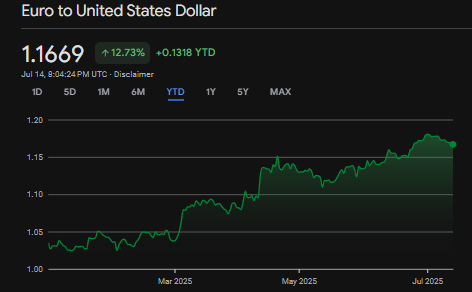Vintage Motorcycle Loophole: Global 30+ Year Exemptions for Tariff-Free Imports
As global tariffs reshape the motorcycle market in 2025, collectors and dealers are rediscovering the value of vintage bikes. While 25% U.S. tariffs on imported motorcycles have driven up prices for modern models, a parallel trend is emerging: countries worldwide offer lucrative exemptions for motorcycles over 30 years old. This guide explores how to leverage these policies to import vintage bikes tariff-free, comparing motorcycle-specific rules to classic car regulations.
Key Global Exemptions for Vintage Motorcycles
Saudi Arabia: 30-Year Rule for "Antique" Bikes
Saudi Customs Authority Regulation Article 55 grants 0% import duty for motorcycles manufactured 30+ years ago (e.g., 1995 or older in 2025).
Motorcycle vs. Car Policies
| Requirement | Motorcycles | Cars |
|---|---|---|
| Age Threshold | 30 years | 30 years |
| Steering Orientation | No restriction | Left-hand drive |
| Road Use | Prohibited* | Prohibited* |
Example Savings:
-
1985 Honda CB750 (Value: $15,000) saves $750 (5% standard duty).
Germany: 30-Year "Old Timer" Benefits
Germany’s vintage vehicle policy applies equally to motorcycles and cars:
-
0% Import Duty (vs. 10% for newer bikes)
-
7% VAT (vs. 19% standard rate)
Key Difference: Motorcycles require TÜV-approved historical certification, while cars need a Classic Car Classification Certificate.
United Kingdom: 40-Year MOT/Tax Exemption
The UK’s rolling 40-year rule exempts eligible motorcycles from:
-
£101 Annual Road Tax
-
£29.65 MOT Test Fee
Car Comparison: Cars receive the same exemptions but face stricter emissions scrutiny.
United States: 25-Year Uniform Standard
The U.S. applies the same 25-year rule to motorcycles and cars:
-
2.5% Duty (vs. 25% for newer imports)
-
No EPA/DOT Compliance required
Market Impact: Pre-2000 Japanese bikes like the 1999 Yamaha R1 have surged 33% in value since 2024.
Strategic Import Approaches
1. Target "Dual-Qualifying" Models
Motorcycles that meet both car and bike exemptions in key markets:
-
1990 BMW R100GS: Qualifies under Saudi 30-year rule and Germany’s Old Timer policy.
-
1985 Honda VF1000R: Eligible for U.S. 25-year exemption and UK’s 40-year MOT waiver.
2. Documentation Best Practices
-
Manufacturing Proof: Factory build sheets or dating certificates from marque clubs.
-
Ownership History: Chain of title tracing back at least 10 years.
-
Compliance Waivers: Submit exemption forms like the U.S. HS-7.
3. Regional Market Arbitrage
| Country | Import Cost (1990 Suzuki GSX-R1100) | Resale Potential |
|---|---|---|
| Saudi Arabia | $12,000 (0% duty) | $18,000 (local collectors) |
| Germany | $14,200 (7% VAT) | $22,000 (EU auctions) |
| Factor | Motorcycles | Cars |
|---|---|---|
| Modification Allowance | Wider tolerance for engine swaps | Strict originality requirements |
| Emissions Testing | Rarely required for exemptions | Often mandated in EU markets |
| Part Sourcing | Aftermarket accepted in most cases | OEM parts often required |
How to Capitalize on Vintage Motorcycle Exemptions
1. Prioritize Markets with Dual Benefits
-
Saudi Arabia/UAE: 0% duty + growing collector demand for 1980s Japanese superbikes.
-
Japan: Zero tariffs on all vehicles over 25 years, including iconic models like the Honda RC30.
2. Leverage Cross-Border Registration
-
Register bikes in the EU first to access Schengen-area free movement, then export to secondary markets.
-
Use the UK’s "Historic Vehicle" status to avoid VAT when re-exporting to Asia.
3. Partner with Specialized Shippers
Our international motorcycle shipping services ensure compliance with age verification and customs documentation.
The Vintage Advantage
While modern motorcycles face steep tariffs, vintage models enjoy growing global exemptions. By understanding nuanced differences between motorcycle and car policies, collectors can build tax-efficient collections with strong appreciation potential.
Ready to import a vintage motorcycle?
Contact our team for tailored strategies leveraging 30+ year exemptions.
You May Also Like
These Related Stories

Import a Car from France: Your Guide to International Shipping

Euro Surge Creates Golden Opportunity for European Car Imports from USA

-093789-edited.png?width=220&height=79&name=wcs_final_logo_(1)-093789-edited.png)
